MercoPress. South Atlantic News Agency
Tag: Brazil World Cup
-
Saturday, June 7th 2014 - 04:58 UTC
Transport chaos in Sao Paulo following second day running of metro strike

Police in Brazil have used tear gas to break up protesters on the second day of a metro strike that has left Sao Paulo's transport in chaos. Nearly half of the stations were closed and there was gridlock on the streets of Brazil's largest city, which will host the opening match of the World Cup next Thursday.
-
Friday, June 6th 2014 - 08:28 UTC
Argentina will have free national transmission of 64 World Cup matches
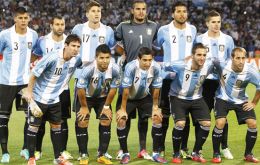
Argentina confirmed on Thursday World Cup nationwide transmission free service both on television and radio. Channel 7, DeporTV and Radio Nacional will be responsible for delivering the service, thus fulfilling President Cristina Fernandez government’s promise of the ”World Cup for the whole country”.
-
Friday, June 6th 2014 - 08:08 UTC
World Cup tickets sold out, disappointing hundreds who queued for hours
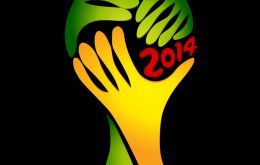
The remaining tickets for the most important World Cup matches were sold out fast on Wednesday, disappointing hundreds of fans who waited in line across Brazil.
-
Wednesday, June 4th 2014 - 08:37 UTC
Brazilians pessimistic about the economy and benefits from the World Cup

Brazilians pessimism about the future of the economy has increased considerably with just a few days left for the opening of the World Cup, according to a public opinion poll released by Pew Research.
-
Tuesday, June 3rd 2014 - 05:39 UTC
Rio mayor: be sure when you arrive in Brazil it's not England or London
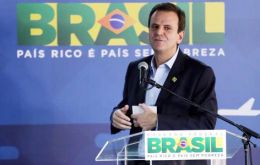
Those travelling to Brazil imagining they have arrived in England or those coming to Rio imagining to be in London “will undergo a frustrating experience” said Eduardo Paes, mayor of Rio do Janeiro, one of the cities to host the World Cup and the 2016 Olympics.
-
Friday, May 30th 2014 - 22:02 UTC
Brazuca ball less erratic than the Jabulani used at South Africa, say Japanese scientists

Scientists in Japan say the Brazuca 2014 World Cup ball will be less erratic than the Jabulani used at South Africa 2010. The Brazuca is the 12th World Cup match ball designed by Adidas. The Jabulani was criticized for its light weight and unpredictability.
-
Monday, May 26th 2014 - 06:33 UTC
Brazil: Furious Dilma fires back at World Cup criticism from soccer star Ronaldo

President Dilma Rousseff hit back over the weekend at criticism voiced by former soccer star Ronaldo over mishandled preparations for the World Cup. In an interview with Reuters Ronaldo lamented that many infrastructure projects promised for the tournament were significantly delayed, scaled-down, or canceled, while some stadiums remain unfinished just over two weeks from kick-off.
-
Tuesday, May 20th 2014 - 08:07 UTC
Pele admits tourists are cancelling trips to Brazil because of protests and delays
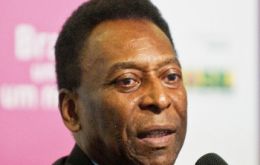
Protests in Brazil and delays in building stadiums are putting the World Cup next month at risk and prompting tourists to stay away, soccer great Pele said on Monday. Brazil's tournament organizers have faced headwinds since the country was tapped to host the World Cup in 2007.
-
Saturday, May 17th 2014 - 06:58 UTC
Rousseff 'fed up' with Blatter; hopes Brazil win the Cup playing Argentina in the final match

Brazilian president Dilma Rousseff confessed on Thursday evening during dinner with journalists that she is fed up with FIFA chief Joseph Blatter and said the last chapter of protests in the Brazilian cities that will host the World Cup next month were a failure.
-
Wednesday, May 7th 2014 - 07:22 UTC
Dilma pledges economic growth with contained inflation following negative stats
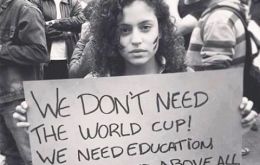
Brazilian president Dilma Rousseff said in a statement that her government ensures sustained economic growth, with contained inflation. The announcement followed market estimates saying that Brazil's GDP expansion this year would be down to 1.63%, below official and private recent estimates above 2%.
